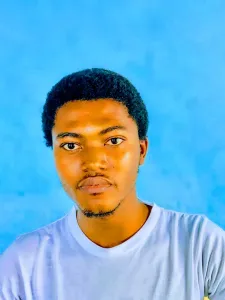That time you gauge rain replaces precious things;
the houses—rape-busted, and summer
has been away
for little years. From whence do the wind
rake a city before. From here, it’s as if
someone catches fire with bare hands.
I stare immaculately at the dizzy wind, crook,
debris, beside the rusty vulcanizing shop,
empty nylons with
burnt cans and watch
the birds loll the sky.
Every airing thing emerges from a source,
each droplet of muddy faeces of wet animals
interconnects, nude pebbles;
from this space they scatter to flow.
Busy scape; zoomlions used to
slumber by heaps in gutters.
Not this year’s: they have to extend their rakes—(stay,
watch, sleep or drown). Later,
marshmallow, flowing across interracial cities
to survive in this cityscape named after the bellies
of caucus
to dupe. It’s a ruffle to dream without
a rifle in Accra.
Home-search;
they carry their legs in disparity, lingering
watch night. To catch fire with bare hands, to touch a cauldron
from an earthen oven, the reality of stranded.
We don’t collide;
we are the finishings of our own province, be at ease,
be at peace, seize the same breath and desert the latter
for growth-anew
For the fire, a righteous testament; for finishings,
fetch the mud, the ramshackle, see the
whimpering child, impoverished homes, the line after each fog
through which the butterflies disappear.
there’s no sweetness here sometimes — unbearable
i am fading. tell it anyhow. the patches
the cries & the aftermath of dying to survive
in madina. gauge the known being. the popular
grief. barreling with complexity. mothers’ live a
spongy-thumb-case void in a baby’s body
i became a harbinger. after a stammer to
pronounce goodwill or i will stutter
to become even. who didn’t pass the
the century interview. for instance. nothing
laughable sits here. except the protracted girls
weeping into the thick chin. of a man. of
the tattered doll. scaring a whimpering baby’s
face. the white lady threw another. banger
at the dark woman’s…. the surging state of
practical discrimination in Native Son—
nothing heartfelt is a pro. in unity. you
my listener. you are a suspect
of intimidating the charcoal indigenes. your blood
is translucent. not lighter in hatred. thicker
in malapropism. thicker in insecurities
I give you my broken. tongue. the. creator of good
& evil. something has to. replace evil or
how do you want the synonyms of bitterness?
this badass is what I want to recreate in my
world. okay — let’s rename it a surplus
of No Sweetness Here & I will tell you
how everything sugared except the
moaning. in
the nurturing house where grief has opened its fangs
like a cobra ready to manoeuvre into a
silky fluid in our muscles.
Your stomach is a seashore named haven or a first ache,
a tunnel that births another tunnel. Your head
is a concave in a wormhole named after pedestal holes
that vein the body—a second ache with a manifold of songs.
One song bookmarks the worries of family issues. One song
subdues the world’s penultimate problems. One song
stays up in the night to battle with thoughts. One song produces
a chaotic song — an orchestra, & the others, a shot bird
falling from a tree. Scattering in the trash. Your hands, a racket, an
oblivious gesticular fig with ten fangs biting through the tedious
jobs. The hand is a chronicle of hard work. To get to a
point, the leg leaps you & your thoughts about angles limp
unto the farthest point, a threshold of suffering. Your body is named
after the servitude of liturgies cloaked by mint of a Negro.
You can survive the hurricane of breath when you stress or even
sigh through fire after you become an immortal machine: your
organs, your abstract, your emotions, your sensations, your
visions, your untitled songs. You will know all the lyrics
i n v o l v e d i n a s p a n.
